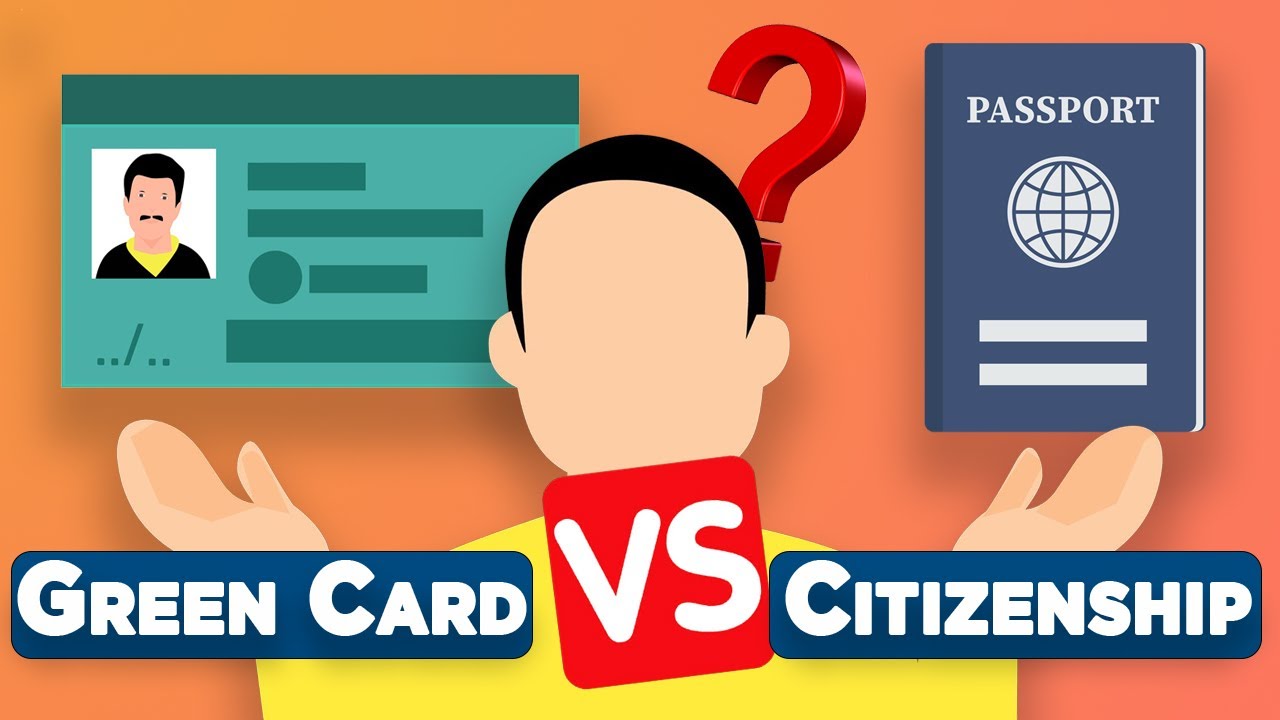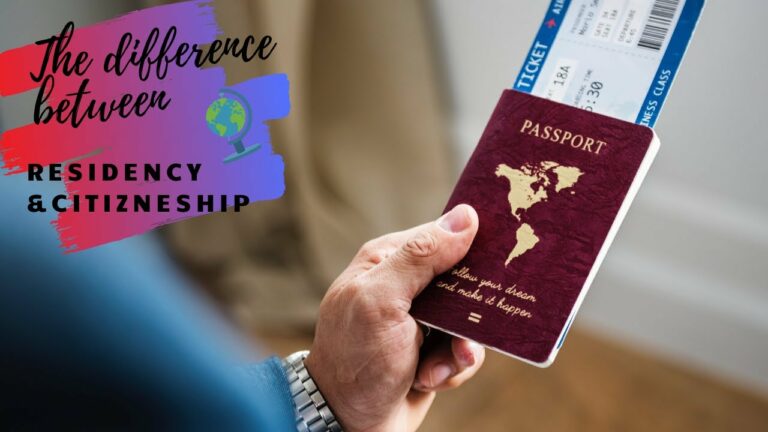Golden Visas: Permanent Residency vs. Citizenship – A Comparative Analysis
I know firsthand how daunting it can be to navigate the complex world of visas, residency, and citizenship. The decision to move abroad is a big one, and it’s important to understand the difference between permanent residency and citizenship.
Permanent residency grants you the right to live and work in a country indefinitely, but you remain a citizen of your home country. Citizenship, on the other hand, gives you the right to vote, access to social benefits, and the ability to apply for a passport from your new home country. But with citizenship often comes a higher cost and stricter requirements.
Personally, I’ve experienced the benefits and drawbacks of both permanent residency and citizenship. In my previous country of residence, I held permanent residency which made it easier to work and travel within the country. However, I missed out on the benefits of citizenship such as the ability to vote and access to certain social programs.
When I moved to my current country of residence, I made the decision to pursue citizenship. While the process was lengthy and expensive, it has ultimately provided me with greater opportunities and freedoms.
In this guide, we’ll explore the pros and cons of permanent residency and citizenship, the requirements and costs associated with each, and provide practical tips to help you make the best decision for your individual needs. So whether you’re considering a move abroad or simply curious about the differences between permanent residency and citizenship, this guide will provide you with the information you need to make an informed decision.
Is a permanent resident the same as a U.S. citizen?
If you’re considering a move to the United States, you may be wondering about the difference between permanent residency and citizenship. While the two terms are often used interchangeably, they actually refer to different statuses with distinct rights and obligations.
Permanent residency
Permanent residency, also known as a green card, is a legal status that allows foreign nationals to live and work in the United States on a permanent basis. To obtain a green card, you must be sponsored by a family member, employer, or other qualifying individual or organization. You must also meet certain eligibility criteria, such as demonstrating that you have no criminal record and that you will not become a public charge.
As a permanent resident, you have many of the same rights and privileges as U.S. citizens. You can work for any employer, start a business, and travel freely within the United States. You can also petition for certain family members to join you in the U.S. and apply for citizenship after a certain period of time.
However, there are also some limitations to permanent residency. For example, you cannot vote in U.S. elections, serve on a jury, or hold certain government jobs. You also must maintain your residency status by renewing your green card every ten years and by not committing any deportable offenses.
Citizenship
Citizenship, on the other hand, is the highest legal status in the United States. It grants all the rights and privileges of a permanent resident, plus additional benefits such as the ability to vote in elections, hold certain government jobs, and travel with a U.S. passport. To become a citizen, you must first have permanent residency and meet additional criteria, such as passing a civics and English test.
Becoming a U.S. citizen is a significant step that demonstrates your commitment to the country and its values. It also comes with certain responsibilities, such as paying taxes and serving on a jury if called upon.
What’s better citizenship or residency?
Moving to a new country can be an exciting but daunting prospect. One of the most important decisions to make is whether to pursue permanent residency or citizenship. While residency grants you the right to live and work in the country, citizenship offers additional benefits such as the right to vote, run for office, and access to government benefits.
Permanent Residency
Permanent residency is a status granted to non-citizens that allows them to live and work in the country on a long-term basis. This can be accomplished through various means such as a family sponsorship, a job offer, or through investment in the country’s economy. While permanent residency does not grant you all the rights of a citizen, it does offer certain advantages such as:
- Freedom to work and live in the country without the need for a work permit or visa
- Access to public education and healthcare
- Right to purchase property and enter into legal contracts
- Ability to travel in and out of the country without restrictions
However, permanent residency also comes with some limitations. For example, you may not be able to vote or run for office, and there may be restrictions on the type of work you can do or the benefits you are entitled to.
Citizenship
Citizenship is the status of being a member of a country and enjoying all the rights and privileges that come with it. This can be obtained through various means such as birthright, marriage, or naturalization. While the process of obtaining citizenship may be more complex and time-consuming than permanent residency, it offers many benefits such as:
- Right to vote and participate in political activities
- Ability to run for public office
- Access to government benefits such as healthcare, social security, and education
- Freedom to travel and work in other countries without restrictions
Additionally, citizenship provides a sense of belonging and security, as well as the ability to pass on citizenship to future generations.
Which is Better?
Ultimately, the decision of whether to pursue permanent residency or citizenship depends on your personal circumstances and goals. If you are mainly interested in living and working in a new country without the need for a visa or work permit, then permanent residency may be the better option. However, if you want to fully integrate into the new country’s society and enjoy all the rights and privileges of a citizen, then citizenship may be the better choice.
It’s important to note that the process of obtaining citizenship can be lengthy and may require meeting certain requirements such as language proficiency or passing a citizenship test. It’s also important to consider the potential downsides of citizenship such as possible tax obligations or military service requirements.
Is permanent residence a citizenship?
If you’re considering a move to a new country, one of the most critical decisions you’ll have to make is whether to seek permanent residency or citizenship. While these two terms are often used interchangeably, they are not the same thing. Permanent residency allows you to live and work in a foreign country indefinitely, while citizenship gives you the right to vote, hold public office, and access certain benefits that are not available to non-citizens.
What is Permanent Residency?
Permanent residency is a legal status that allows you to stay in a foreign country for an extended period. It gives you most of the same rights as a citizen, including the right to work and pay taxes, access healthcare and education, and own property. However, you won’t be able to vote or hold public office, and you may have some restrictions on travel, especially if you have a criminal record or have been involved in any activities that are considered a threat to national security.
Many countries offer permanent residency programs to attract foreign investment and talent. These programs are often referred to as golden visas and require applicants to make a significant investment in the country, such as buying property or starting a business. Some countries also offer permanent residency through sponsorship by family members or employment.
What is Citizenship?
Citizenship is the legal status of being a member of a country and having the rights and duties that come with it. It gives you the right to vote, hold public office, and access certain benefits that are not available to non-citizens, such as a passport that allows you to travel visa-free to many countries. Citizenship is typically obtained through birth, marriage, or naturalization, which involves fulfilling certain requirements, such as living in the country for a certain period, passing a language and civics test, and demonstrating good moral character.
Is Permanent Residency a Citizenship?
No, permanent residency is not citizenship. While permanent residency gives you most of the same rights as a citizen, it does not give you the right to vote, hold public office, or access certain benefits that are reserved for citizens, such as a passport that allows visa-free travel to many countries. However, permanent residency can be a stepping stone to citizenship, as many countries offer a path to citizenship for permanent residents who meet certain requirements, such as living in the country for a certain period and passing a language and civics test.
Is citizenship better than green card?
Are you considering a move to a new country? Or are you already an expat looking to secure your status in your host country? Whatever the case may be, the question of permanent residency versus citizenship is bound to come up. In this article, we’ll explore the pros and cons of each and help you make an informed decision.
What is permanent residency?
Permanent residency, also known as a green card or permanent resident card, is a status granted to foreign nationals allowing them to live and work in a host country on a permanent basis. It is a step below citizenship and comes with some restrictions.
Some of the benefits of permanent residency include:
- Permission to live and work in the host country indefinitely
- Access to social services, such as healthcare and education
- The ability to travel freely in and out of the host country
- The ability to sponsor family members for permanent residency
However, permanent residents are not allowed to vote in elections, run for public office, or hold certain government jobs. Additionally, permanent residency can be revoked if the individual commits a serious crime or if they leave the host country for an extended period of time.
What is citizenship?
Citizenship is the status granted to individuals who are recognized as legal members of a country. It comes with all the rights and responsibilities of being a citizen, including the right to vote, run for public office, and hold government jobs.
Some of the benefits of citizenship include:
- The ability to vote in elections and have a say in the government
- The ability to apply for a passport and travel more easily
- Protection from deportation and the ability to stay in the host country indefinitely
- Access to all social services and benefits
However, obtaining citizenship can be a long and expensive process, and some countries have stricter requirements than others. In addition, citizens can also be subject to certain taxes and military service requirements.
So, is citizenship better than a green card?
Ultimately, the decision between permanent residency and citizenship depends on your personal goals and circumstances. If you plan to live in the host country for the rest of your life and want to have a say in the government, citizenship may be the better option for you. However, if you don’t plan on staying forever and just want the ability to live and work in the host country, permanent residency may be sufficient.
Personally, I chose to pursue citizenship in my host country because I wanted to fully integrate into the culture and have a say in the government. It was a long and expensive process, but I believe it was worth it in the end.
choosing between permanent residency and citizenship is a significant decision that requires careful consideration of various factors. As an expat, understanding the legal aspects, cultural customs, and investment opportunities of your host country is crucial in making an informed decision. Ultimately, whether you choose permanent residency or citizenship, the most important thing is to integrate into your new home and enjoy the benefits that come with expat life. With the right mindset, research, and professional guidance, you can successfully navigate the path to becoming a fully-fledged member of your host country’s society.




